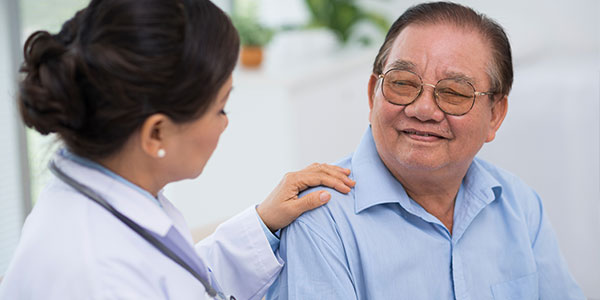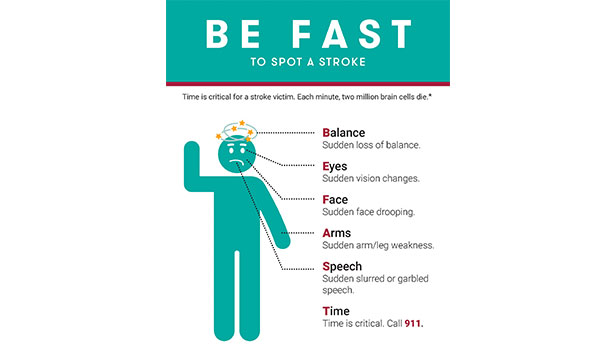At Sutter East Bay Medical Foundation (SEBMF), we’ve made stroke and neurovascular care a top priority. Since we offer care at two of the largest hospitals in the East Bay—Alta Bates Summit Medical Center and Eden Medical Center—we treat more than 500 people with stroke and neurovascular disorders each and every year.

Both Alta Bates Summit Medical Center and Eden Medical Center are Joint Commission-certified primary stroke centers. There, we provide a full continuum of stroke care—from diagnosis in the emergency room to treatment for stroke patients in the hospital and outpatient clinic.
With stroke, time is of the essence. Use the acronym F.A.S.T. to remember the sudden symptoms of a stroke. If you or someone around you experiences face drooping, arm weakness or speech difficulty, it’s time to call 911.
If you arrive at the emergency room quickly after the first sign of stroke symptoms, we can give you tPA (altaplase) “clot busters” to try to “melt away” the blockage. If you have a larger clot we may attempt an endoscopic balloon angioplasty or stenting.
Once we’ve cleared your clot, your care doesn’t stop there. After your discharge, we see you for your after-stroke preventive regimen, and you may have the opportunity to participate in post-stroke clinical research trials. We also collaborate with acute rehabilitation doctors to provide award-winning treatment certified by the Commission on Accreditation of Rehabilitation Facilities (CARF).
Stroke Care and Recovery
Quick treatment and a clear path to recovery can mean all the difference after a stroke. Our Continuum of Care Infographic (PDF) illustrates the potential paths of recovery most patients face when first receiving care and recovering from a stroke.













